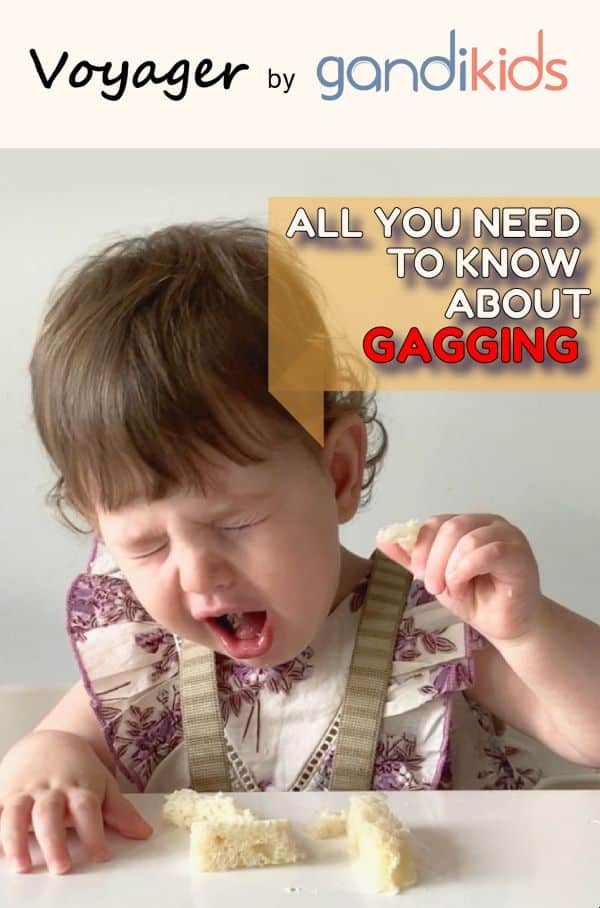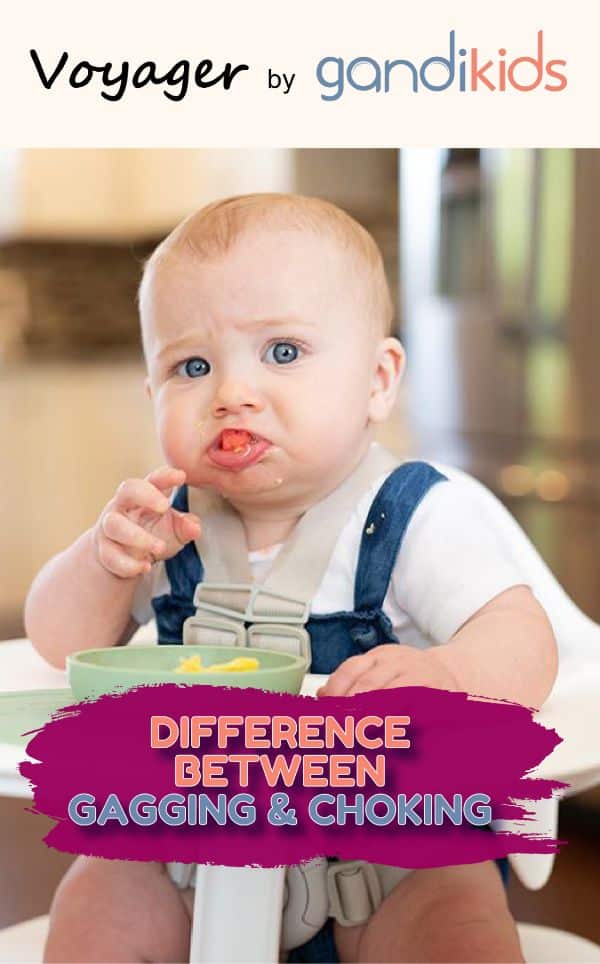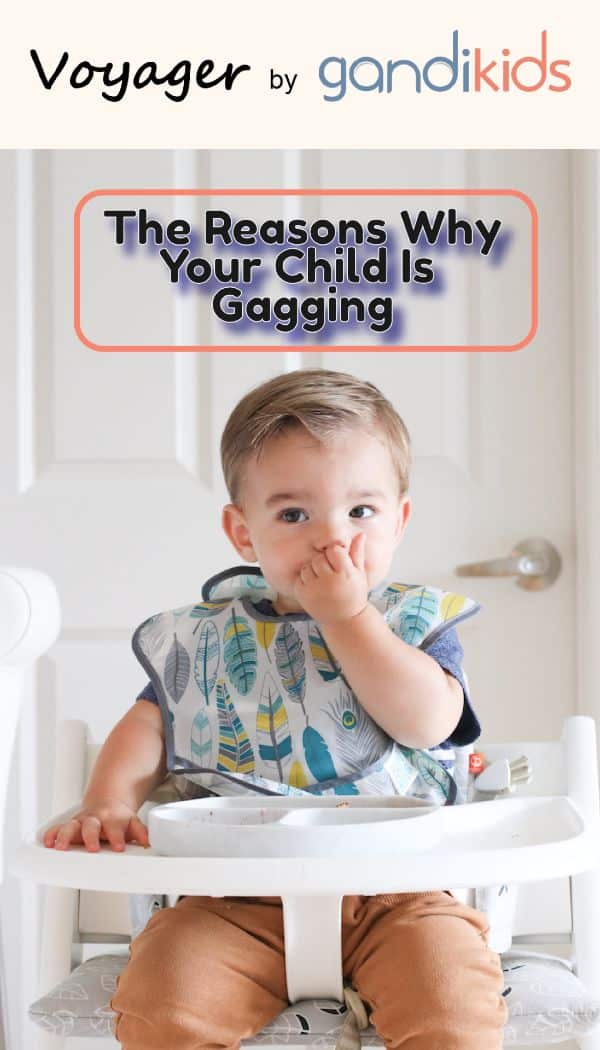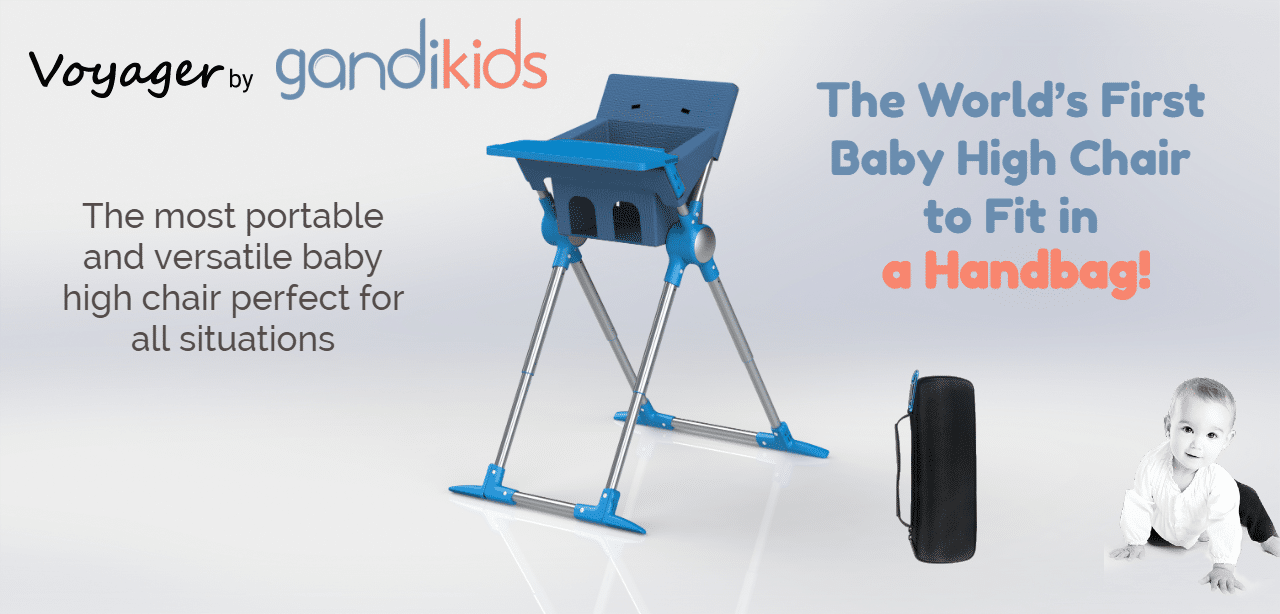All You Need to Know about Gagging
It would not be wrong to mention that parenting is the toughest job in the world, especially when the little ones start to do something new and cannot express their feelings. You may experience one such problem during the self-feeding phase of your toddler.
As you have just started giving them new food experiences, you can sometimes see your child gag. Though it is an entirely usual process, you still need to take care of a few factors.
Here we will discuss some crucial points that you need to keep in mind if you see your tot gag at any point in time.
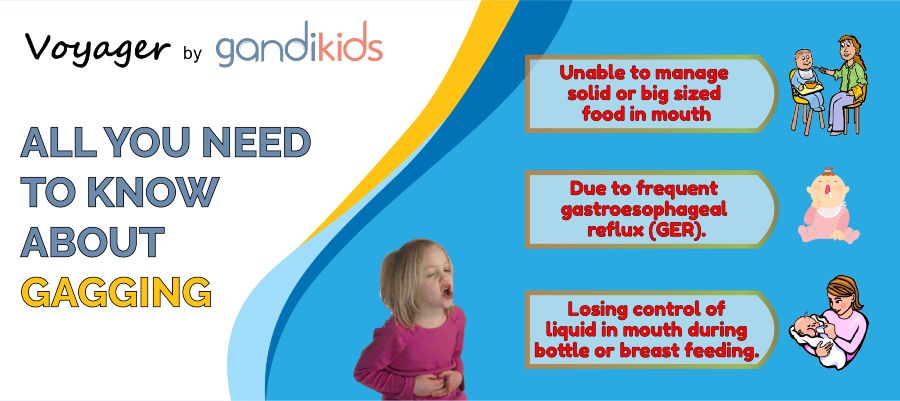
When you shouldn’t worry
Many people confuse gagging with choking and start to worry as soon as they see their toddlers in discomfort. Being a smart parent, you should know the difference between these two so that you do not create any unnecessary fuss around the topic.
Choking is when something blocks the airway, which leads to trouble in breathing. On the other hand, gagging is a natural reflexive attempt of the mouth to push away any new items.
Differentiating in gagging and choking
Technically, gagging is the procedure that the body undertakes to avoid choking. In some cases, a gag may lead to choking. But that does not happen every time, and there is nothing unusual that you should be worried about. You can easily differentiate among the two phenomena by looking at your little one’s condition at the time of discomfort. A few things you can notice during choking are:
- Little or no sound
- Open-mouth
- Drooling
- Wide-eyes
- The skin around the mouth or eyes turning blue
If no symptoms like these are encountered, you might be experiencing your baby gagging on food, and there is nothing to worry about that. To be on the safer side, you can keep them in a good position while eating. A high chair is the perfect solution for that.
When it’s time to worry
Choking is not the only condition in which you should be worried. Even if the kid gags more frequently, it might be a sign of a problem. Here are the two situations when you should consult your pediatrician:
Breast or Bottle-Feeding
If the young one is on bottle or breast-feeding phase and has the problem quite frequently, then you should be a little worried. The reason being, gagging too often can lead to loss of control of the mouth’s liquid. You can notice that they might cough, change breathing patterns, or get different colored skin around lips/eyes every time they eat. In such cases, consulting a physician is the best option for you.
Spoon or Self-Feeding
If you have started experimenting with your kid’s eating habits, then the chances of gagging increases. It happens because their mouth is not able to manage the solids with the movement. Once they get more familiar with the food, this coordination becomes better, and they can easily swallow the food. But if you find the baby gagging during feeding or even without feeding, then it may be a point of concern. If they feel discomfort every time they eat, they will leave the procedure altogether.
Not noticing on time, can lead to severe health problems, or make the young one choosy with different foods.
Reasons for Gagging
Gagging is a general reflex action of the mouth whenever something unfamiliar touches the tongue’s back three quarters. It pushes the food out to protect the kid from choking, and a gag is experienced. If the child gagging happens once in a while, when they eat a specific food, then you can seek some help from an expert who can evaluate their feeding habits. But if they gag every time you feed something new to them, then it would be a point of concern.
Further, gagging may be happening due to frequent gastroesophageal reflux (GER). In this condition, the food in the stomach rises and gets to the throat and creates problems. Unlike feeding gagging, this can happen at any time of the day. That is why you need to keep a close eye on when your child is behaving oddly. Several dangerous conditions can happen due to frequent or excessive gagging. If you see any such signs, seek help from your physician, who can examine and guide you better. Also, you should only feed the baby with age-appropriate foods that they can easily intake and digest. You can opt for a high chair as well to keep the posture correct while eating.
Conclusion
Gagging is a natural phenomenon that happens with almost all kids, or even with adults sometimes. But as little ones cannot express their feelings, it becomes crucial for you to give them extra attention. If you experience your baby gagging on food every time you feed them, then it becomes a point to worry. It can lead to some serious issues or bad food habits for them. So you must consult your pediatrician if you think your child has excessive gagging.
Pin It for later
